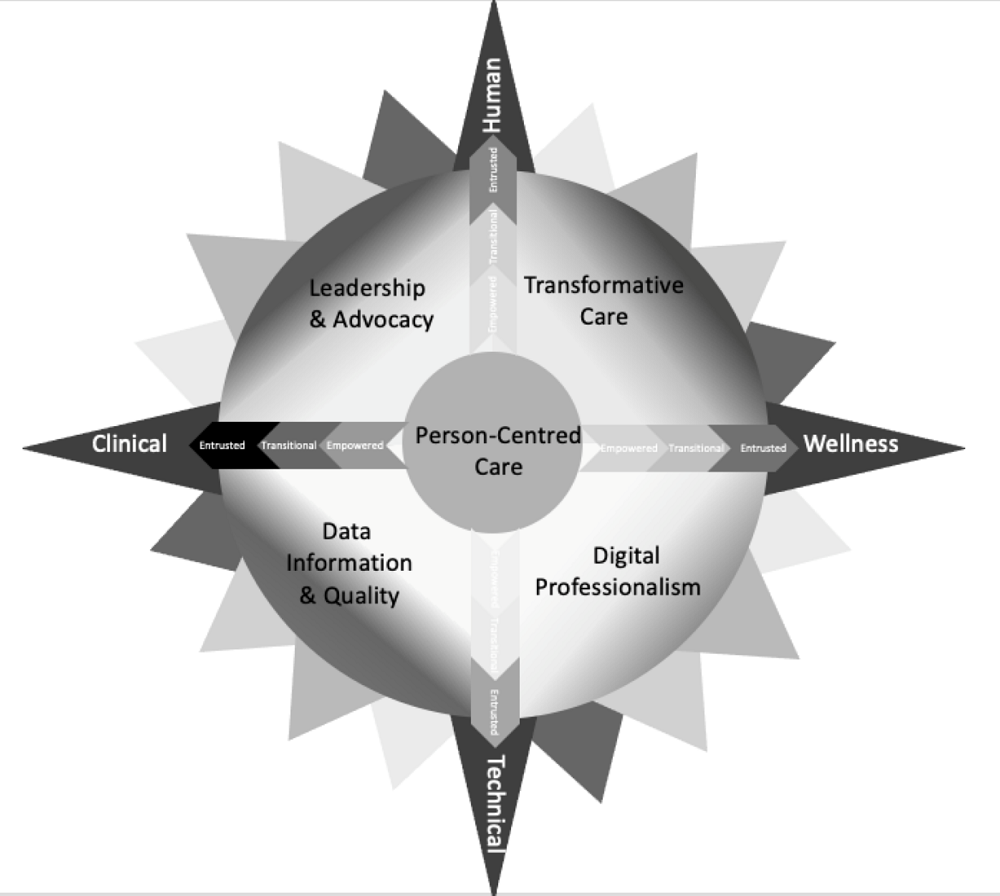Digital health research is an emerging discipline that requires easy-to-understand theoretical frameworks and implementation models for digital health providers in health and social care settings. The COVID-19 pandemic has heightened demand for digital health discipline-specific instruction on ‘how to’ manage evidence-based digital health transformation. Access to the use of these models guarantees that digital health providers can investigate phenomena using safe and suitable approaches and methods to conduct research and identify answers to challenges and problems that arise in health and social care settings. The COMPASS theory is designed to aid transformation of health and social care environments. A navigational rose of primary quadrants is divided by four main compass points, with person-centred care being central to the philosophy. Two axes produce Cartesian planes that intersect to form a box plot, which can be used to discover human and physical resource weightings to augment digital health research design and implementation. A third continuum highlights stakeholders' capabilities, critical for any multidisciplinary study. The COMPASS mnemonic guides end-users through the process of design, development, implementation, evaluation, and communication of digital health transformations. The theory's foundations are presented and explained in context of the 'new normal' of health and social care delivery.

